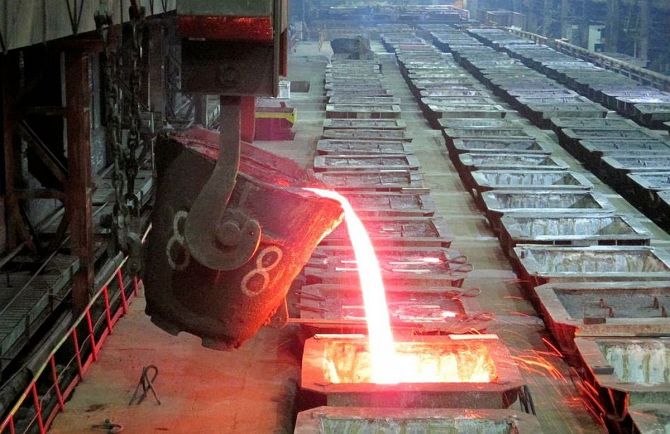In a significant move to enhance its strategic resource security, India has officially released its first-ever critical minerals list, identifying 30 key critical minerals crucial to the nation’s economic growth and technological development.

This pioneering step aims at reducing import dependence, enhancing supply-chain resilience, and supporting the country’s net-zero objectives.
Union Minister Parliamentary Affairs, Coal and Mines Pralhad Joshi, while releasing the Critical Minerals for India report in New Delhi on Wednesday, said, “India is readying for an Atmanirbhar Bharat.”
The critical minerals list, formulated by the Ministry of Mines, includes a diverse range of minerals considered essential for various industries such as defence, electronics, renewable energy, telecommunications, and transportation, among others.
The list comprises 30 minerals, including 17 rare earth elements (REEs) and six platinum-group elements (PGE), each designated as critical based on their economic importance and limited availability in India’s geological reserves.
Among the minerals featured on the list are antimony, beryllium, bismuth, cobalt, copper, gallium, germanium, graphite, hafnium, indium, lithium, molybdenum, niobium, nickel, PGE, phosphorous, potash, REE, rhenium, silicon, strontium, tantalum, tellurium, tin, titanium, tungsten, vanadium, zirconium, selenium, and cadmium as critical to Indian economy.
Ten minerals on the list are 100 per cent import-dependent.
These are lithium cobalt, nickel, vanadium, niobium, germanium, rhenium, beryllium, tantalum, and strontium.
Union mines secretary Vivek Bharadwaj stated that India’s international commitments towards reducing carbon emissions require the country to urgently relook its mineral requirements for energy transition and net-zero commitments.
“The ministry will be revisiting the critical mineral list periodically,” he added.
To expedite the development of domestic mineral resources, the government plans to encourage public and private investments in exploration, mining, and processing facilities.
It also intends to facilitate the adoption of advanced technologies and international collaborations to enhance efficiency and environmental sustainability in the extraction and processing of critical minerals.
India has already entered into the US-led Mineral Security Partnership to secure a global supply chain for critical minerals. This is India’s second such alliance this year.
In April, in a first-of-its-kind partnership, the Indian and Australian governments decided to jointly invest $3 million each for five critical mineral exploration projects in Australia.
In mid-2020, India, through Khanij Bidesh India Limited, a joint venture of three public sector undertakings — National Aluminium Company, Hindustan Copper Limited, and Mineral Exploration Company Limited — signed an agreement with an Argentinian firm to jointly prospect lithium. Besides this, it is also exploring options in Chile and Bolivia, said Bharadwaj.
The government has also asked Jammu & Kashmir to hold lithium auctions at the earliest, said Joshi.
The government hopes to find more lithium reserves in the region later this year, added Bharadwaj.
Critical minerals have complex global supply chains with a high concentration in the extracting and processing countries, resulting in high supply risks.
The US has declared 50 minerals critical in light of their role in national security or economic development.
The UK considers 18 minerals critical, the European Union has declared 34 minerals critical, and Canada and Japan 31 each. Australia has 26 critical minerals.
By harnessing its vast geological wealth, India endeavours to become a global hub for critical mineral production and reinforce its position as a major player in the global economy.
According to experts, it is a strategic initiative that reaffirms India’s commitment to strengthen its mineral sector and reduce dependence on imports which often leads to supply chain vulnerabilities and price volatility.
The lack of a specific list of critical minerals was also becoming a deterrent towards prioritising the country’s critical mineral needs.
The list will serve as a guiding framework for policy formulation, strategic planning, and investment decisions in the mining sector.
By strategically developing and managing its mineral resources, India aims at ensuring long-term security, mitigate risks, and bolster industrial competitiveness.











